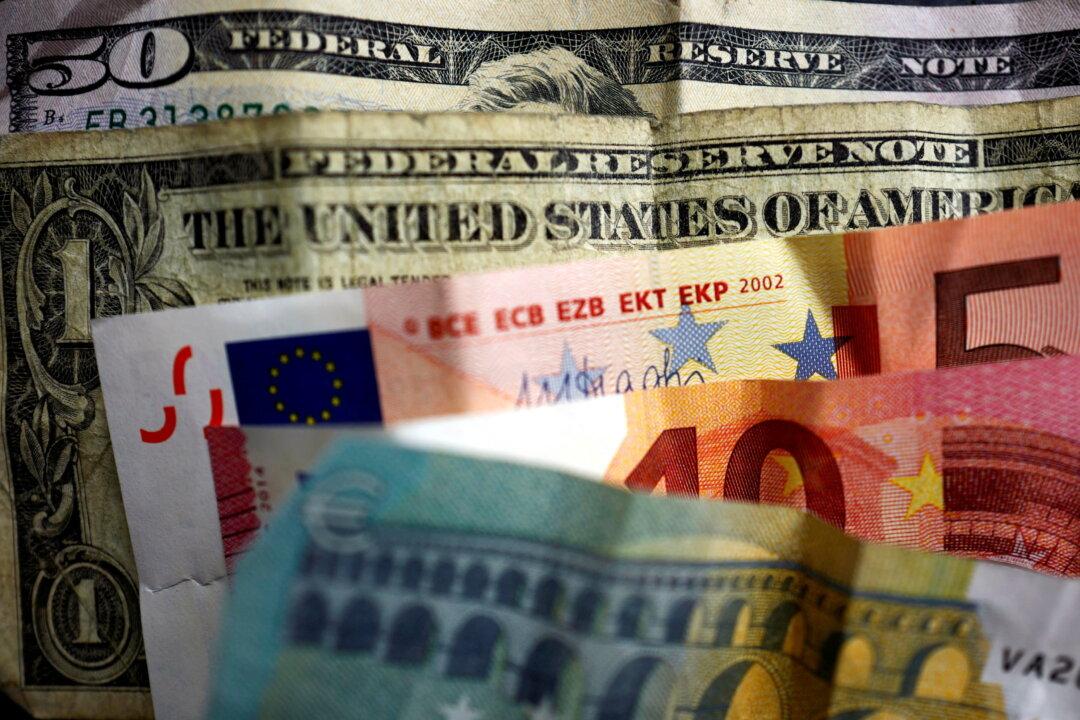LONDON—The euro weakened on Tuesday with the Swiss franc and the Swedish crown the winners as French election worries and the chance of more sanctions against Russia unnerved investors.
French financial markets acknowledged the possibility of right candidate Marine Le Pen beating President Emmanuel Macron in this month’s elections, with sharp losses on Paris blue chip index and government bonds.





